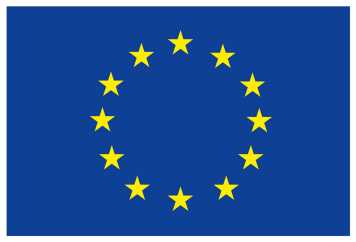GEOCEP - Global Excellence in Modeling Climate and Energy Policies
This research project, funded by the European Commission, focuses on economics and policy of climate change and energy.
About GEOPEC
Research
GEOCEP, funded by the European Commission, focuses on economics and policy of climate change and energy. It covers the drivers of climate change, the examination of climate change and energy-related risks and vulnerabilities, the valuation of economic impacts of climate change mitigation and adaptation policies, and the investigation of significant policy responses to global climate and energy challenges.
Secondments
GEOCEP supports international transfers of knowledge and scientific networking between top-ranked research institutions in the world. Researchers from beneficiary institutions of the European Union are seconded to institutions in Australia, Canada, Chile, China, New Zealand, South Africa, and the United States. These scientists are senior research fellows, professors, early-career academics and doctoral students.

Duration: 48 months from 1 February 2022 - 31 January 2026

This project has received funding from the European Union’s Horizon 2020 research and innovation programme under the Marie Skłodowska-Curie grant agreement No 870245.
Coordinating institution
_______________________________________________________________________________________
ETH Scientific Leader
_______________________________________________________________________________________
Administrator ETH (secondments)
_______________________________________________________________________________________
Division
EEPE - Chair of Energy and Public Economics
General objectives
The project Global Excellence in Modeling Climate and Energy Policies (GEOCEP) provides an innovative economic modelling framework supporting the energy transition to a zero-carbon economy. Besides, it integrates new challenges posed by this transition, including social and technological innovations, the need for flexibility, and new business and services models.
The project brings together leading global and regional think tanks and universities. It connects the frontiers of climate change and energy economics with state-of-the-art natural and social sciences which are utilized in complex modelling.
Activities
GEOCEP aims at developing innovative economic models to support the transition to a zero-carbon economy.
It is divided in six work packages:
- The drivers of social and technology innovations;
- Integrated and hybrid modelling of climate change;
- Health and environmental impacts of climate change and ancillary benefits;
- Political economy, institutions, and development.
- Exploitation, Dissemination and Policy Engagement
- Coordination and Management of Partnership
Moreover, GEOCEP research secondments support a world-wide knowledge transfer aimed to achieve scientific breakthroughs in creating new generations of models enabling complex economic analysis of the anthropogenic drivers and the impacts of and responses to climate change.
Expected results
GEOCEP aims at advancements in modelling techniques related to carbon pricing and impact assessment, including Integrated Assessment Models, hybrid modelling platforms and related theoretical and empirical models.
GEOCEP clearly identifies institutional and political obstacles to implementing the first-best solutions to control for the global carbon externality and, consequently, investigates an array of second-best energy and climate mitigation policies focused on increasing energy efficiency, on reducing emissions and related environmental and health externalities and on promoting renewable energy. An understanding of the public impact of energy transition and climate change requires intensive communication of innovative research results to policy-makers and active
dissemination to the public at large. This communication and dissemination effort enables formulation of evidence–based and publicly supported policies on both global and regional levels.
Partners:
- LONDON SCHOOL OF ECONOMICS AND POLITICAL SCIENCE, LSE, United Kingdom
- THE CHANCELLOR, MASTERS AND SCHOLARS OF THE UNIVERSITY OF OXFORD, UOXF, United Kingdom
- FONDATION JEAN-JACQUES LAFFONT,TOULOUSE SCIENCES ECONOMIQUES, TSE, France
- EIDGENOESSISCHE TECHNISCHE HOCHSCHULE ZUERICH, ETH Zürich, Switzerland